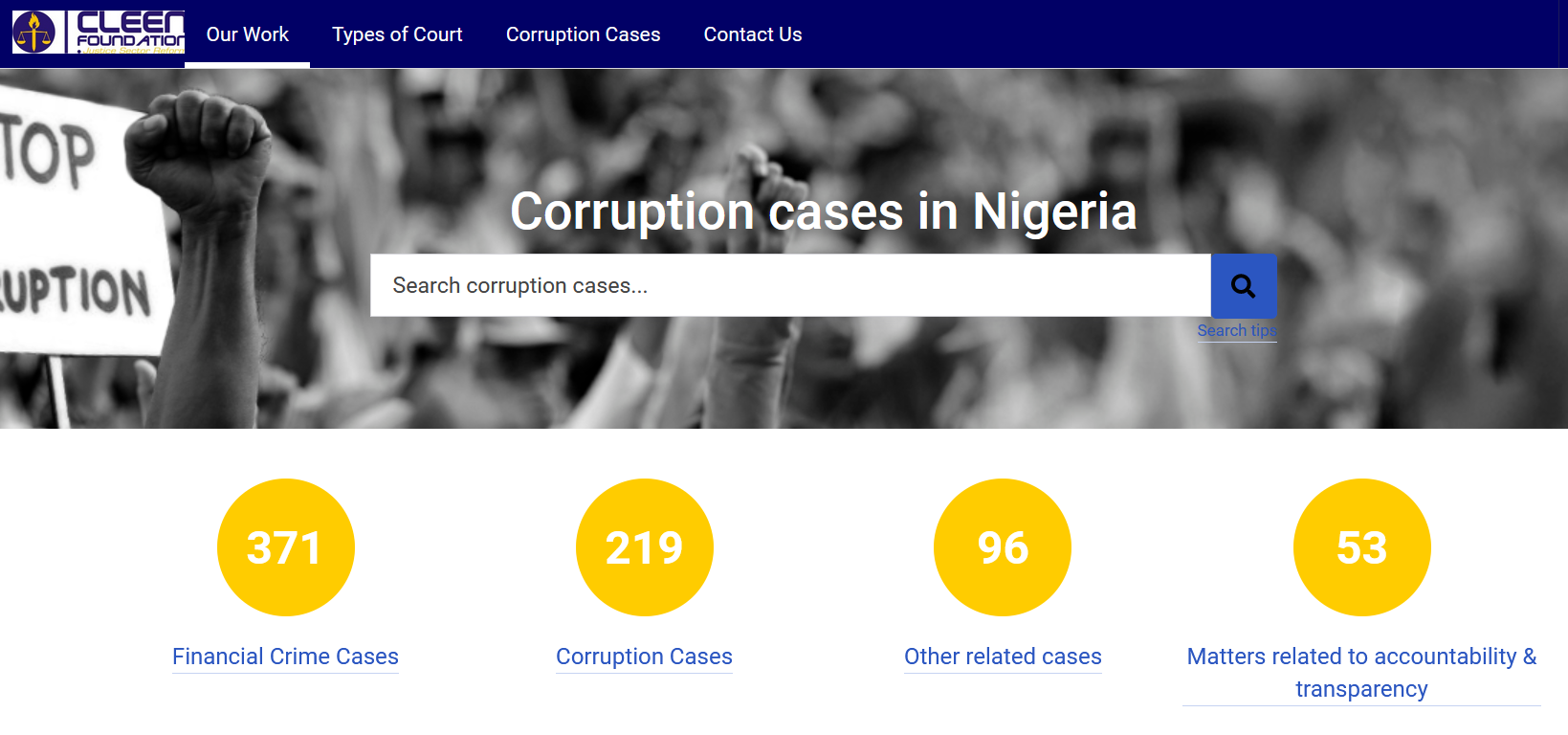The CLEEN Foundation has launched the Nigeria Court Digitisation Project – an initiative that leverages Uwazi to bring transparency into the monitoring of key jurisprudence.
Corruption in Nigeria
Nigerians have a lot to be optimistic about. As of 2015, Nigeria is the world’s 20th largest economy. It is considered a regional power and by some, an emerging global power. It has a young and growing population. However, this growing country is also considered to be topping the list of countries in the area of corruption. According to Transparency International’s Corruption Perception Index, which ranks 180 countries and territories by their perceived levels of public sector corruption according to experts and businesspeople, Nigeria has a score of 27 (where 0 is highly corrupt and 100 is very clean). In relation to other countries on this index, Nigeria ranks 144th out of 180 countries. In 2012, Nigeria was estimated to have lost over $400 billion to corruption since independence in 1960. Corruption has had a significant impact on the realisation of economic, social and cultural rights in Nigeria – it ranks at 157th in the world on the Human Development Index (a statistic composite index of life expectancy, education, and per capita income indicators).
The Administration of Criminal Justice Act (ACJA)
The CLEEN Foundation seeks to contribute to addressing corruption in Nigeria by monitoring the implementation of the Administration of Criminal Justice Act (ACJA) a veritable tool that can be used to tackle corruption if well implemented by enabling actions to strengthen and uphold this relatively new legislation. The ACJA is a national law enacted in 2015 that provides for more efficient management and speedy dispensation of criminal justice in Nigeria.
The ACJA has the potential to significantly boost anti-corruption efforts through more successful prosecutions of corruption cases. Implementation of the ACJA will not only help to modernise the criminal justice system in Nigeria, but also create platforms for transparency and accountability of the criminal justice actors. To date, 21 out of 36 states in Nigeria have adopted the ACJA.

Making courts proceedings more transparent
In its effort to monitor the implementation of the ACJA in relation to tackling issues of corruption, the CLEEN Foundation developed the Nigeria Court Digitization project. This project aims to digitise court proceedings in Nigeria, thus improving access to key documents that can be used in the fight against corruption. The CLEEN Foundation expects this project to contribute to:
- Greater awareness of the implementation of the ACJA among Nigerians: Through this project, citizens will gain knowledge and awareness on the prosecution of corruption and financial crime cases and the application of the ACJA in the disposal of such cases. A study of each case affords the researcher the knowledge of the unique peculiarities that promote or discount the implementation of the ACJA.
- Improved implementation of ACJA through analysis of cases and trends: A credible platform that improves access to these documents will allow experts to assess legal analysis of cases and their trends in the application of the ACJA.
- Increase in successful prosecution of corruption cases: Improved access contributes to the wealth of legal jurisprudence in Nigeria, especially as it relates to the prosecution of corruption cases.
Our work with the CLEEN Foundation started in 2015, when they helped us imagine the vision for Uwazi at its inception meeting. By the time the CLEEN Foundation was ready to begin collecting and organising information for this digitisation project in 2017, the first release of Uwazi was ready.
Through their network of trained data collectors who visit courts to digitise the physical documents, they have so far uploaded 262 case documents. In the near future, their project website will allow anyone to upload documents to the database collection (with document metadata curation from the CLEEN team).
We are excited to see how the project moves forward to address the complex issue of corruption, and we’re proud to be able to contribute Uwazi as one piece to this puzzle.
We want to thank MacArthur for their support of the development of Uwazi and this partnership with the CLEEN Foundation.
